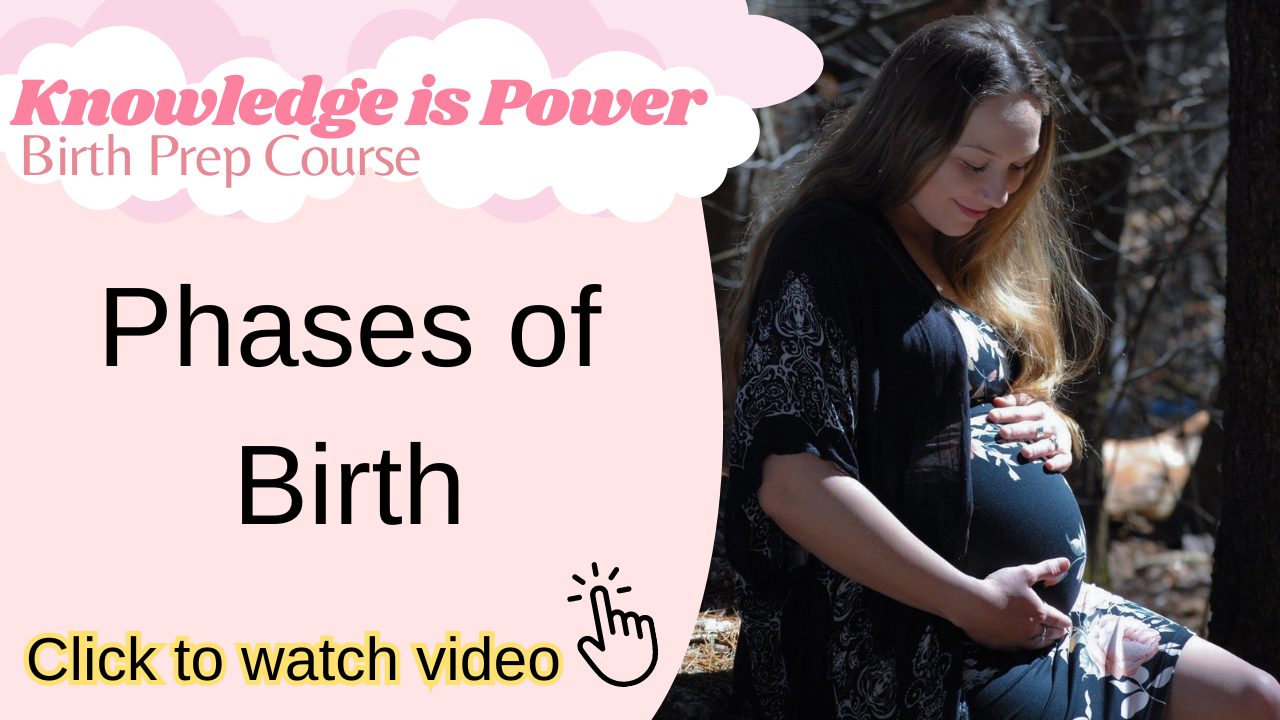Notes
Every birth is different. Some births take a few hours and some take days. I believe that our bodies are preparing for birth throughout our entire pregnancy. Pregnancy is the first phase of birth. An intricate matrix of hormones is being released in waves leading up to birth. The hormones of pregnancy help women to stay pregnant, but they also trigger many other changes in her mentally and physically. During this time we grow our babies and nourish our bodies. There is a lot that comes up for women during pregnancy - physically, emotionally, and spiritually. It is common for women to evolve throughout their pregnancy. Women tend to deal with less bullshit and set firm boundaries in pregnancy. They might cut some people off and build new connections with other people. This is all in preparation for birth and motherhood.
Towards the end of pregnancy, her hormones begin to change in continued preparation for birth. Her body releases the hormone Relaxin to help relax her muscles and connective tissues to help her stretch and open during birth. She will start to release increased levels of Oxytocin, the love hormone, which triggers sensations in the uterus commonly called contractions. Women sometimes experiences these sensations all throughout their pregnancy. It can be completely normal and is the uterine muscles preparing for birth. Occasionally, contractions in pregnancy can be a sign that a woman is overexerting herself or dehydrated, so that is something to be mindful of.
These contractions or surges will increase in intensity, signaling that she is entering the next phase of the birth process. This is the early phase of the birth process. Birth is a marathon, not a sprint. During this phase, it can be helpful for women to try to relax, sleep(especially if it is nighttime), eat, drink, read, watch a movie, or whatever feels right. This phase can take hours or days. Every birth is different and some are quick and some are long. It can be helpful to expect this phase to last a while. I have seen women exhaust themselves during this early phase because they are excited to meet their baby. They can get discouraged when hours go by and their baby is still not here. This is why I tell women to expect the birth process to take several hours or a couple of days. That can be perfectly normal, and they will be pleasantly surprised if the process is quicker.
During this phase, she usually feels her contractions slowly increasing in intensity and becoming closer together. Eventually, they might become so intense that she feels she cannot handle much more. This is commonly called the transition phase. This phase can last minutes or hours. The cervix is fully blossoming to prepare for the baby’s emergence. It is normal for women to have moments of self-doubt at this point. I have heard women ask to go to the hospital, and get an epidural, some women even think they are going to die. I know this seems dramatic, and I don’t mean to scare you. This phase of birth is very intense and a woman’s mind is in a dreamy or cloudy state so she may say things that she normally wouldn't. She may be blunt or harsh because there is no energy for sugarcoating or pleasantries.
This usually signals that her journey is nearing the threshold. Shortly after this period, she will enter the pushing phase where she will feel an irresistible urge to push or she may even experience the fetal ejection reflex. Like all phases of labor, the pushing phase is different for everyone. Some women push for hours and some for minutes. If she can get into positions that are intuitive for her the pushing phase will be much easier. An audience or people disrupting her at this time can prolong this phase and cause distress to the mother and baby. Birth attendants, step aside and observe. There is nothing to do here but hold space for her and send her love and strength energetically.
Soon her baby will emerge. This is a time for bonding with the baby and her partner. Eventually, the placenta will be born. This can take minutes or hours. There is really no rush to birth the placenta. Typically it takes several minutes for the cord to finish pulsing and for the placenta to detach from the uterine wall. The mother may have to bear down and even give a very gentle tug to her cord to birth her placenta. Occasionally placentas can get stuck inside the uterus or in the vagina. After a few hours, it is usually time to release the placenta. A woman may need assistance from a friend or birth attendant to release her placenta.
Some tips to birth the placenta
Push hard. It may take more effort than you think.
Change positions. (Squatting, kneeling, lunging, or sitting on the toilet)
Empty your bladder
Gently tug on cord(Not too hard though because you can rip the cord off)
Gently press on the top of your uterus and push in on your pubic bone as you push
Energetic or spiritual practices may be helpful. Thank your placenta and accept the end of your pregnancy and the beginning of motherhood.
After the placenta is birthed your pregnancy is officially complete. The next 40 days are your postpartum phase. This is a time for bonding with your family, resting, healing, and nourishing. The first 40 days after birth are incredibly important for your overall health and wellness. Accept help from your village. Enjoy your mothering journey.
Additional Resources
The Holistic Stages of Labor with Whapio 'The Matrona' (youtube.com)
Brain Waves in Labor - Better Birth Blog
Pregnancy hormones: Progesterone, hCG, and other hormones during pregnancy | BabyCenter
Hormones of pregnancy and labour | You and Your Hormones from the Society for Endocrinology
Book Recommendation: Portal by Yolande Norris-Clark

